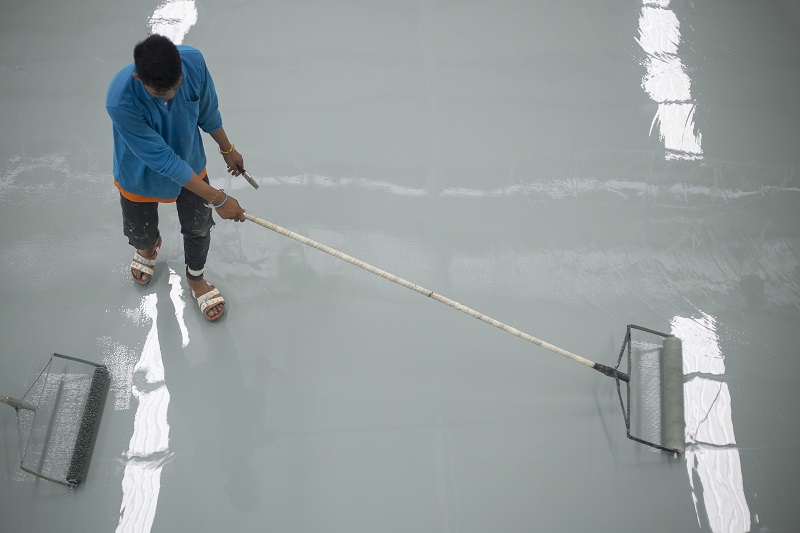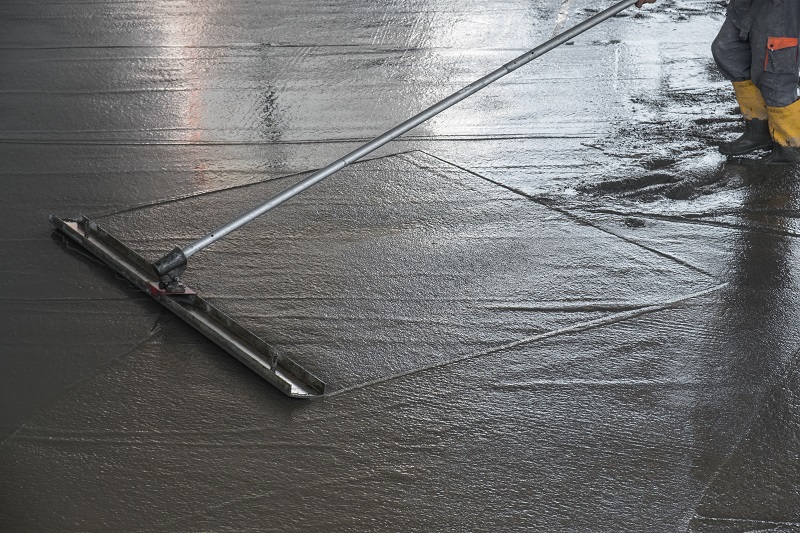Mistakes to Avoid when Preparing for Epoxy Floor Coating
Dec 28, 2018

Few flooring coverings equal the durability, appearance, and cost-effective benefits of epoxy floors. Not only is an epoxy floor coating thicker than paint, but it also offers a beautiful finish that covers any minor imperfections or flaws that have damaged a concrete floor. Whether your business is industrial, commercial, automotive, or governmental, it all starts with an experienced contractor who offers epoxy floor coating surface preparation in New England.
What is Epoxy?
Epoxies are created through polymerizing two substances, a resin, and a hardener. Whenever a resin is mixed with a catalyst, such as a hardener, curing occurs, resulting in the final product which seals and protects. Epoxy is a substance that can be adapted to any number of uses.
Russian scientists first started synthesizing epoxy compounds in the early 1900s, but it wasn’t until 1927 that it was adapted for commercial use. In the beginning, epoxy was primarily used in the marine industry, combined with paint and applied as a final coat to seal the hulls and decks of ships. Other versions were used for repairs on the internal side of hulls. By the 1950s, additional industries caught on to the wide array of uses epoxy provided. New formulas were created for use in building construction as a structural adhesive. Not only was it transparent, but it could also be adapted so that it set either quickly or slowly, with the required rigidity or flexibility. Today, coating service preparation companies offer professional epoxy floor coatings across a wide number of industries.
Epoxy Floor Coatings
Bare concrete is dusty. Foot traffic and daily use create dust buildup. When applied correctly, using proper epoxy coating surface techniques, epoxy serves as a sealer, putting an end to the dust your concrete floors shed during a typical day’s use. It’s also resistant to moisture and works well in geographical areas such as New England that must deal with the effects of snow. Epoxy floor coatings protect the concrete underneath and offer easy clean-up with some soap and water. These floor coverings are also resistant to oil, gasoline, bleach, cleansers, and other types of chemicals.

Possible Mistakes During Surface Preparation
The durability and bright, seamless appearance of an epoxy floor coating is based on its application, and that’s why it is important to find an experienced epoxy flooring surface preparation company to make the transformation. Epoxy is a versatile product. But if there is poor surface preparation before the epoxy coating is applied, it will not have the same durability and flawless appearance. Many of the common mistakes made by inexperienced or non-professional providers are committed during the preparation phase.
In order for the epoxy to adhere to a smooth surface like concrete, the surface must be free of oils, waxes, and other contaminants like degreasers or detergents that leave a residue behind.
The concrete’s surface pores must be opened through an acid etching or grinding. When these steps are not performed, the epoxy can actually peel away from the surface or create circles resembling fisheyes, which not only detract from its appearance but also leave vulnerabilities in the surface. Experienced surface preparation services often perform moisture tests to ensure that the surface is dry following the etching phase. Accurate measurements of the area are taken, and the amount of epoxy that will be needed is calculated before starting the project. Epoxy coating surface preparation applications should follow the manufacturer’s specifications as to temperature and humidity conditions before starting a project.
For more information on our available services, including epoxy surface coating preparation in the New England area, visit our website or contact us for a free quote on your upcoming project.
Advanced Prep Coat, Inc.
41C Sutton Lane
Worcester, MA 01603
63 School Street
Putnam, CT 06260
800-230-2937
- Connecticut
- Maine
- Massachusetts
- New Hampshire
- New York
- Rhode Island
- Vermont
- and the entire Northeast
